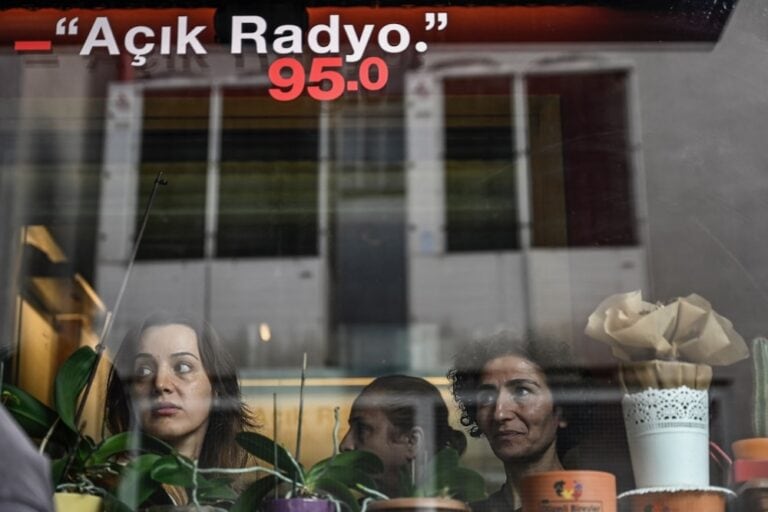(BIANET/IFEX) – As the Press Council notes the censorship of various news programmes in the month of September 2007, the European Court of Human Rights (ECHR) finds fault with Turkish court rulings in the case of two citizens. The General Secretary of the Press Council, Oktay Eksi, has reported on the state of media freedom […]
(BIANET/IFEX) – As the Press Council notes the censorship of various news programmes in the month of September 2007, the European Court of Human Rights (ECHR) finds fault with Turkish court rulings in the case of two citizens.
The General Secretary of the Press Council, Oktay Eksi, has reported on the state of media freedom in September 2007. Based on information from national television stations, he announced that the Radio and Television Supreme Council (RTÜK) terminated or suspended 39 programmes on 16 television channels in September.
Many of the RTÜK decisions were punishments for pre-election “misdemeanours” that the Supreme Election Council (YSK) identified. For instance, the main news programme of KanalTürk channel, and another entitled “Editor’s Desk”, were not suspended for nine days, beginning 11 September. Similarly, “Kanal 24” news was suspended six times as punishment for carrying what were considered to be “pro-AKP” (Justice and Development Party) broadcasts before the elections.
Eksi said that neither the YSK nor RTÜK were to blame for these anti-democratic measures, but rather that the existing laws, which obliged these bodies to act in this way, were at fault.
Meanwhile, in two separate cases, the ECHR ruled against Turkey for prior prosecutions related to freedom of speech.
In one case, the ECHR decreed that Erdal Tas, former editor of the now-closed “Yeni Gündem” newspaper, was not given a fair trial by Turkey and that his right to freedom of expression had been violated. Tas, who lives in Switzerland, had been fined several times by the Turkish government because he allegedly had published announcements made by Kurdistan Workers’ Party (PKK) members. Turkey has now been sentenced to paying 5,000 Euros, which includes 2,000 Euros in damages, for previously punishing him on these counts. The ECHR had previously ruled against Turkey in four other cases the state had brought against Tas.
In a second case, the ECHR has also ruled that Turkey pay compensation for imprisoning human rights activist Akin Birdal. The ECHR has decreed that the punishment of Birdal, former president of the Human Rights Association (IHD) and now MP for the pro-Kurdish Democratic Society Party (DTP) in Diyarbakir, for a speech he made on World Peace Day in 1995, was a violation of his right to freedom of expression.
Birdal spoke at the United Communist Party branch in Mersin, southern Turkey, in September 1995. He said in his speech that the Constitution of 12 September [i.e. the constitution created by the military junta after the military coup in 1980] did not protect Kurdish citizens. He was sentenced to five years’ imprisonment and a fine by a State Security Court in Adana in December 1998 and went to prison in 2000.
Although Birdal was finally acquitted in February 2005, he was not compensated for his time in prison, as a law concerned with compensation in such cases only came into effect in June 2005. Birdal appealed to the ECHR, quoting Article 10, which guarantees freedom of expression, and Article 6/1, which is concerned with fair trials.
The ECHR, as in several cases before, said that it was normal to “doubt the neutrality and independence” of the State Security Courts, which included military members at that time, and decreed unanimously that there had not been a fair trial.
The ECHR further evaluated Birdal’s speech as a “critical look at the situation in the Southeast of Turkey” and concluded that, since the speech did not include incitement to violence, armed resistance or a revolution, the punishment for “inciting hatred and hostility” was “disproportionate for a legitimate purpose.” The court decreed that there was no hate speech involved and ruled that Turkey pay Birdal a total of 7,000 Euros in compensation.


